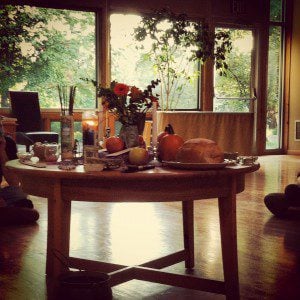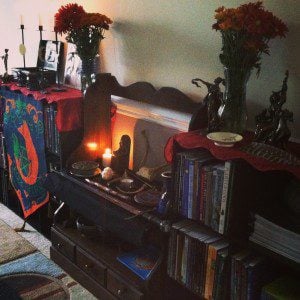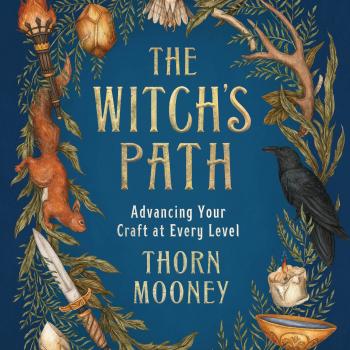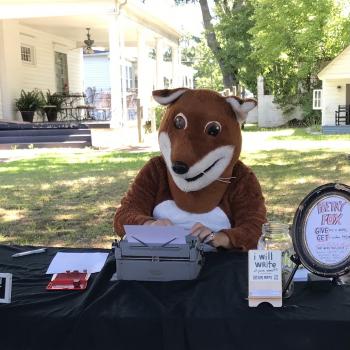Being a Seeker
I’m yet to see any comprehensive guides to seeking in traditional Wicca. Most of the books on the market cater to solitary practitioners (who’ve been in the majority for quite some time now, if popular books and the Pagan Census are any indication), and the rest tend toward do-it-yourself democratic models for groups of friends. Both of these options are fine ones. It’s challenging finding others you really want to share your Craft with, and many people just don’t feel moved to do so at all.
But for those who feel compelled to pursue traditional, hierarchical, coven-based forms of Craft (where the goal is training rather than camaraderie alone), it can be difficult to know where to start.
What to Want
There are all kinds of covens. Beyond that, there are all kinds of ways to practice witchcraft. Each attracts particular kinds of people with particular interests and goals. Knowing who you are and what you want are key to finding a good match while looking for a group.
Do you want something formal, with a lineage you can trace to a significant historical figure or movement? Do you want a group of best friends, learning and exploring on equal terms? Do you want to only circle with a particular demographic of people (only women, for example)? Do you want the opportunity to include your children? How do you feel about working skyclad? Having alcohol or drugs in circle? Indoors or outdoors? Closeted or a focal point of the local community?
These are just some of the questions you should begin asking yourself. Others are more practical: What will my schedule allow? How far do I have to travel? Will my spouse support my choice?
My experience has been that Gardnerian Wicca—just as an example—tends to attract people who like a lot of structure. Most of the people I’ve circled with (at least here in the South) have spent a fair amount of time in environments that involve a lot of hierarchy and precision: the military, first responders, academia, high-pressure office environments. I know some free spirits, too, don’t get me wrong. There are always exceptions, and geographic region has noticeable impact (Wiccans in San Francisco, CA vs. Wiccans in Charlotte, NC). But I think there are observable patterns and these are worth considering.
It’s also important to understand that, aside from the tradition, a coven’s collective personality is the product of the members, and particularly the leaders (if there are leaders). I’m a geeky, introverted academic with a noticeably lacking filter between my brain and my mouth. Some people find this off-putting (I know, right?). The result is that Foxfire tends to be best suited for people with thick skins, an appreciation for irony, and way too many books. One of my Craft siblings, however, is a hippie homesteader who raises chickens and (probably) sings to her plants. She’s totally different and totally amazing. And her coven, though we’re practicing the same tradition, attracts different kinds of people than my own. We still have an amazing time when we’re all together.
In the process of vetting, I always ask seekers to describe their ideal coven. It gives me a better picture of what they’re looking for and helps me to gauge whether or not we’re a good match for each other. This is an excellent exercise, regardless of whether or not you’re looking to get in with a specific tradition. Be honest, but have fun with the fantasy. It’ll give you good insight into what might really make you happy.
Where to Look
Once you’ve settled on a particular tradition or type of Craft, read everything about it you can get your hands on. Does it have prominent authors or texts? Read them. Is there a public e-mail or Facebook group? Get on it. You should have done your homework before making contact.
Once you’ve done that, your best bet for finding a coven is still, after all these years, The Witches’ Voice (or “Witchvox” for those of you who haven’t had much exposure to Pagan banter). Witchvox is not the easiest site to navigate—there’s a ton to look at—but you should start with your area page. Here, you can select your state, territory, or country, and browse listings for individuals, shops, and groups. Anyone can post to Witchvox, so use your good sense when choosing to contact someone. Many listings are inactive, but there’s a fair chance that you’ll at least leave with a starting point.
If you’re interested in British Traditional Wicca (though plenty of American traditions are represented here, too), it’s worth checking out the Yahoo group Amber & Jet (you’ll need a Yahoo ID to access, but signing up takes just a minute). Yahoo groups are starting to feel pretty archaic at this point, but they’re still effective. Don’t be intimidated by the ongoing conversations between initiates of various traditions. The list is designed to aid seekers. Join, make an introductory post, and ask for leads in your area. There are seekers groups on Facebook, too.
You should also take advantage of your local open community. Go to public rituals, psychic fairs, New Age conventions, Pagan Pride Day, local metaphysical or witch shops (maybe even botanicas, depending on what you’re looking for), and anything that even remotely resembles what you have in mind. Yeah, maybe it’s a Druid ritual and you’re more interested in Wicca, but you should still go (particularly if it’s the only thing in town). All of these communities overlap, whether we’re comfortable with that or not. You may disdain New Agers (or whoever) and find open rituals boring, but you still need to go. Over and over. There are people just like you hoping for someone more like them to show up and be the best friend they always wanted. Make as many contacts as possible. Ask around for groups that may not advertize online. Somebody knows someone. And finding the right group, whether it’s a formal coven or just your new BFFs, is worth suffering through flat rituals and awkward potlucks. Trust me on this one.
How to Get In
This is way less mysterious than people assume: you use your good manners.
Understand that you are courting a group of (probably) strangers who have something you want, and, further, that they’re under no obligation to give it to you. Once you’ve found a group that interests you, approach someone in it (preferably a leader) either in person or online and politely express your interest.
The rules of polite letter writing apply to e-mail, and this is a neglected art. You don’t have to be formal necessarily, but you should address it and sign it. You should include a greeting. You should express thanks for your reader’s time and consideration. Do not make demands. Do not send terse messages that say things like, “I want to be a witch and am interested in your coven. Tell me more about your group.”
No.
I have neither the time nor the desire to describe my coven to some stranger on the Internet who just sent me an anonymous e-mail. I get at least a few of these every month, depending on what’s happening on American Horror Story or Salem. But the fact is that I don’t want or need just anyone in my coven. Further, I have no investment in a stranger’s quest to become a witch. My obligations are to the tradition itself and those to whom I’ve already committed. You, seeker, are the one who wants something from me. And just like a prospect at the bar (the same bar from last time…I’m there a lot), I must be wooed.
So what should you write instead? How do you get the information you want?
You write about yourself. You tell me who you are and what you want and why you want it. Then you tell me specifically why you’re approaching me. Have you researched my tradition? There are plenty to choose from, and most people still opt to work alone. Why choose me and mine over the myriad other options available? What do you think I have to offer to you that’s worth having? And what can you offer my coven in terms of your personality?
It can be helpful to equate the process to interviewing for a job or applying to a school. You want to put your best foot forward and imagine things in the long-term (Can I be around these people for potentially years? Will this tradition complement my life goals? Is my current home situation suitable? Am I willing to prioritize this, at least while training?). You should assume that there are other candidates being considered. You should also know that you have other options, even if it doesn’t seem like it in the moment. Other groups will come along. Your needs will change. Being solitary is always an option, and it’s a good one for many people. It doesn’t make you an inadequate witch.
If all goes well, you’ll have a back-and-forth through e-mail, then maybe a phone conversation, and eventually an invitation to meet in person. This may be for ritual at someone’s home, but often you’ll meet people in more casual settings first: coffee, dinner at the local Denny’s, a meet-up at an open Pagan event. You’ll have the opportunity to feel each other out, decide if you’re comfortable, and then make a more informed decision. Just as you would in many other social situations, it would behoove you to be polite, honest, clean, courteous, and not obviously dysfunctional.
Be yourself. Unless you’re a jerk. Then stay home.
(Seriously, though. Be yourself. It’s not a test where you need to trick people in order to be your friend and let you in. You’ll either be a good fit or you won’t, and if it doesn’t come out now it’ll just come out later. If the group in question isn’t right for you, you just keep looking.)
Some Final Thoughts
Understand that seeking can take years. Some people get lucky right away, but others have to persevere. Sometimes you have to do a lot of waiting (particularly if you’re seeking a very specific tradition or line within a tradition). Understand also that you’ll more than likely go through a couple of false starts, dud covens, and painful break-ups. It’s a lot like dating. One failed relationship shouldn’t lead you to the conclusion that all relationships are pointless and you’d better just start drinking and adopting lots of cats. You do your best to learn from the experience, keep what’s valuable, focus on getting your own life in order, and then keep looking for something better. If you choose to be solitary, do it because that’s how you’re happiest and most effective as a witch, not because you think all covens are the same.

















